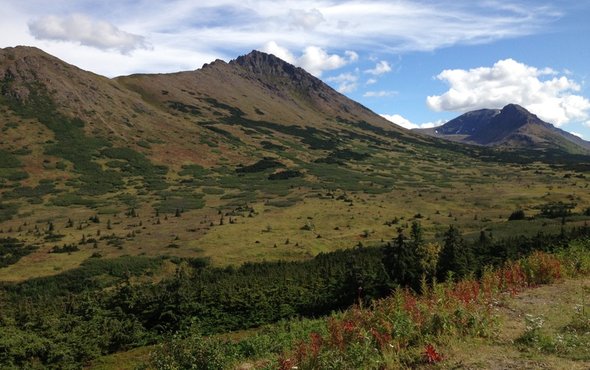(单词翻译:单击)
听力文本
This is Scientific American — 60-Second Science. I'm Steve Mirsky.
"We find that the composition of ecosystems around the world is changing much more rapidly than we expected, and indeed, much more rapidly than ecological theory predicts."
Biologist Anne Magurran of the University of Saint Andrews in Scotland.
"We still don't understand the consequences of this. We think that it's going to be associated with a reduction in resilience in these assemblages, but there are still many questions to be addressed about the consequences of this rapid biodiversity change. And what it means is that if we're interested in conservation we need to do much more than count species. We also need to track changes in the abundances and identities of the species present in these ecosystems. Conservation biologists will need to keep track of the types of species that they find in these places. And policy makers will need to take account of these changes in their policy."

To that end, Magurran and colleagues are establishing what they're calling the BioTIME Database, a repository for information about ecological communities and populations, and how they're changing over time. Magurran spoke on January 26th with Scientific American Editor in Chief Mariette DiChristina at the World Economic Forum in Davos.
MD: "And the data set is going to be published very soon?"
AM: "Yes, we're publishing the data set. It's an open access data set, so anybody anywhere in the world can use it for research, for education, for conservation. And we'd be delighted to collaborate with anybody who has data and wishes to join with us or wishes to support the preservation of the data set in any way."
Thanks for listening for Scientific American — 60-Second Science. I'm Steve Mirsky.
参考译文
这里是科学美国人——60秒科学。我是史蒂夫·米尔斯基。
“我们发现全球生态系统的构成正在发生变化,而且变化速度比我们预期的要快得多,实际上其速度也比生态学理论预测的要快得多。”
苏格兰圣安德鲁斯大学的生物学家安妮·马古兰说到。
“至于这种情况会产生的后果,我们仍然没有理解。我们认为,这将会降低这些组合的恢复能力,但是这种生物多样性迅速变化所产生的后果,目前还有很多问题需要解决。这意味着,如果我们要进行生态保护,我们需要做的远不止统计生物种类。我们还要追踪这些生态系统中物种密度和特性的变化。保护生物学家要记录他们在这些地点发现的物种类型。而决策者在制定政策时则要考虑这些变化。”
为了实现这个目标,马古兰和同事正在建立“生物时代数据库”,这是一个关于生态群落和种群及其如何随时间变化的信息资源库。1月26日马古兰在达沃斯世界经济论坛上同《科学美国人》主编玛丽埃特·迪克里斯蒂娜进行了交谈。
玛丽埃特·迪克里斯蒂娜:“这些数据集会很快公布吗?”
安妮·马古兰:“是的,我们将公布这些数据集。这是个开放获取的数据集,世界上任何地方的任何人都可以用这份数据集进行研究、教育和生态保护。任何掌握数据并希望加入我们或希望以任何方式支持数据集保护的人士,我们很乐意与之合作。”
谢谢大家收听科学美国人——60秒科学。我是史蒂夫·米尔斯基。
译文为可可英语翻译,未经授权请勿转载!
重点讲解
重点讲解:
1. be interested in 感兴趣的;有兴趣的;关心的;
Given that she was really interested in children, teaching was a proper career for her.
倘若她真的对孩子感兴趣,教师这一职业对她来说很合适。
2. keep track of 跟上…的进展;掌握…的最新消息;
Her mother used to keep track of every penny she spent.
她母亲从前把自己所花的每一分钱都记下来。
3. take account of 考虑到;把…计算在内;
In developing a design, one has to take account of many factors.
进行设计时,要考虑许多因素。
4. be delighted to do sth. 乐意的;荣幸的;
I was delighted to be able to eat my favorite dishes to my heart's content.
我很高兴能够痛痛快快地吃我最喜爱的菜。


